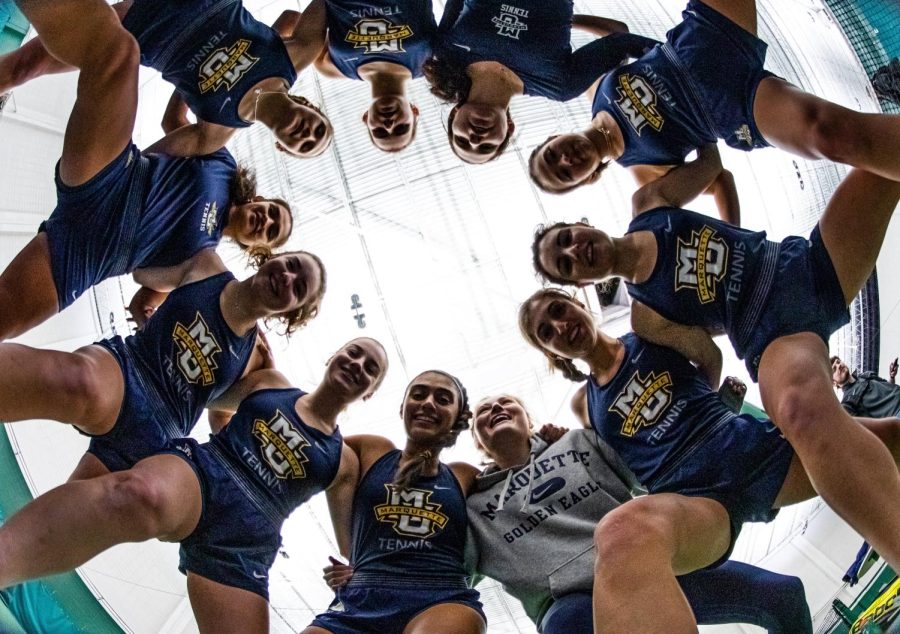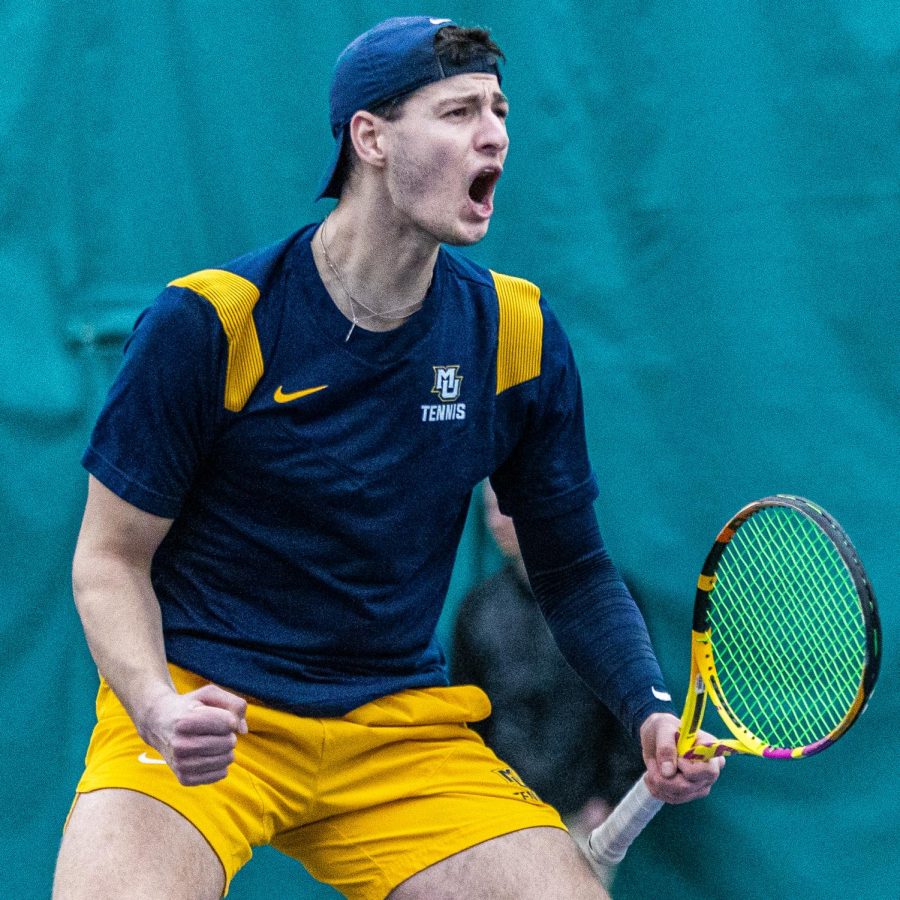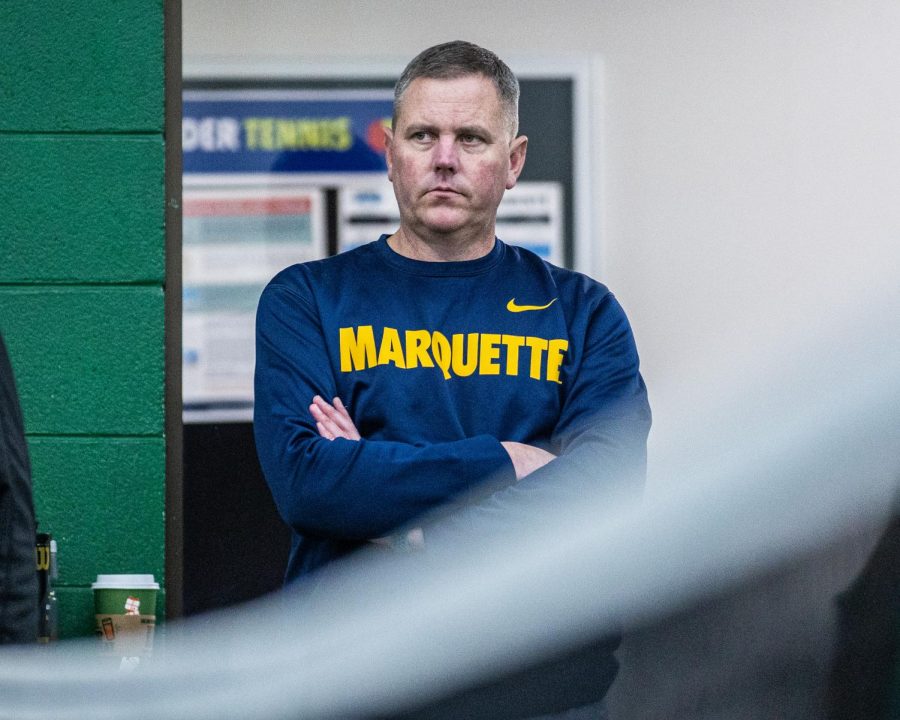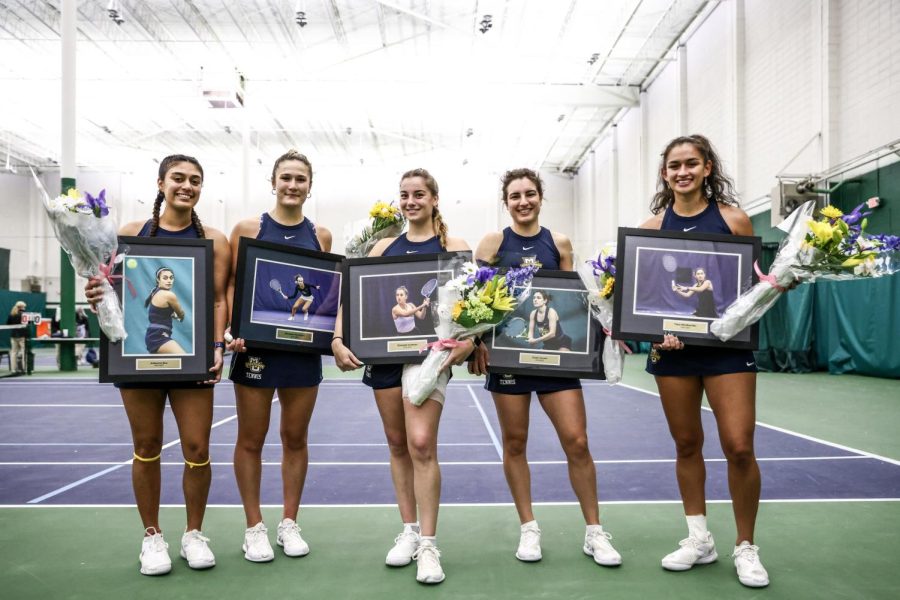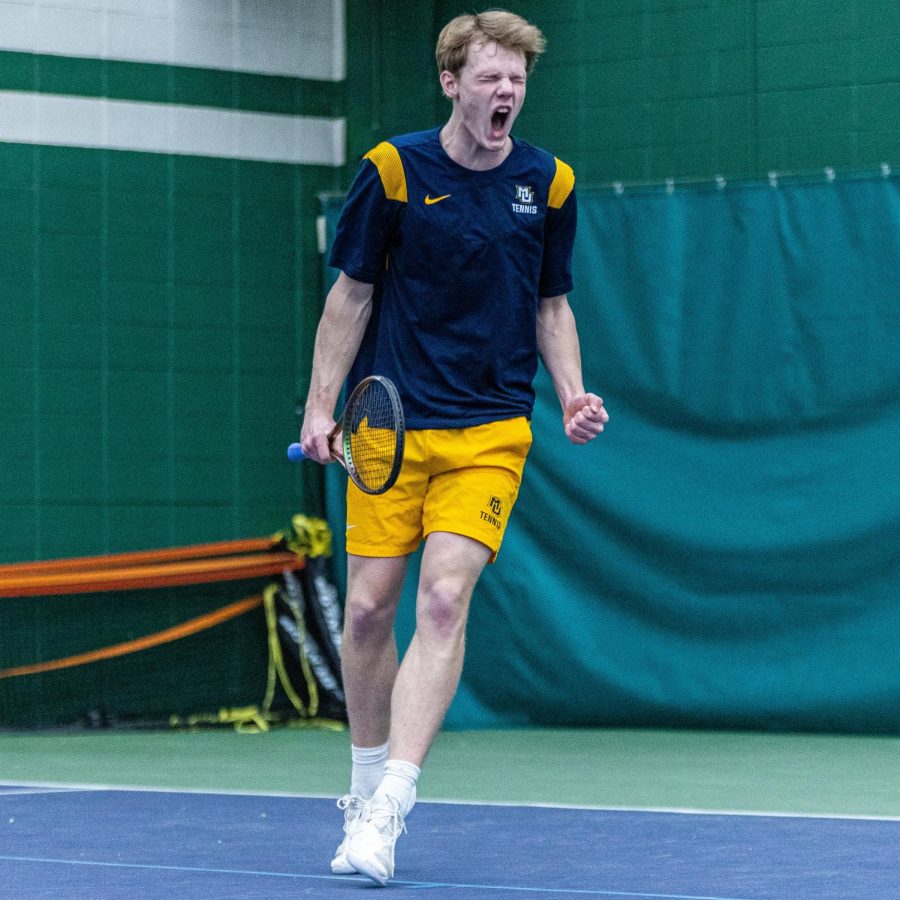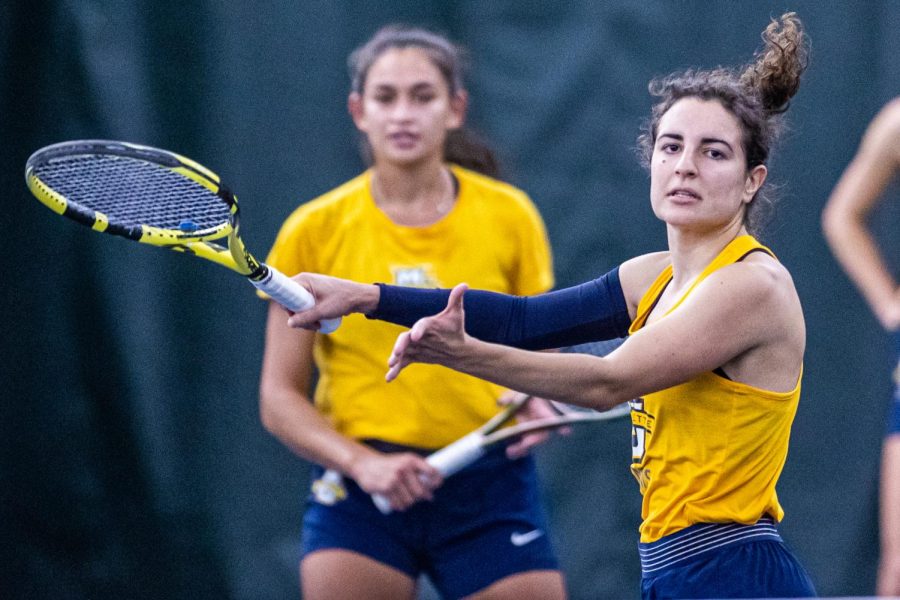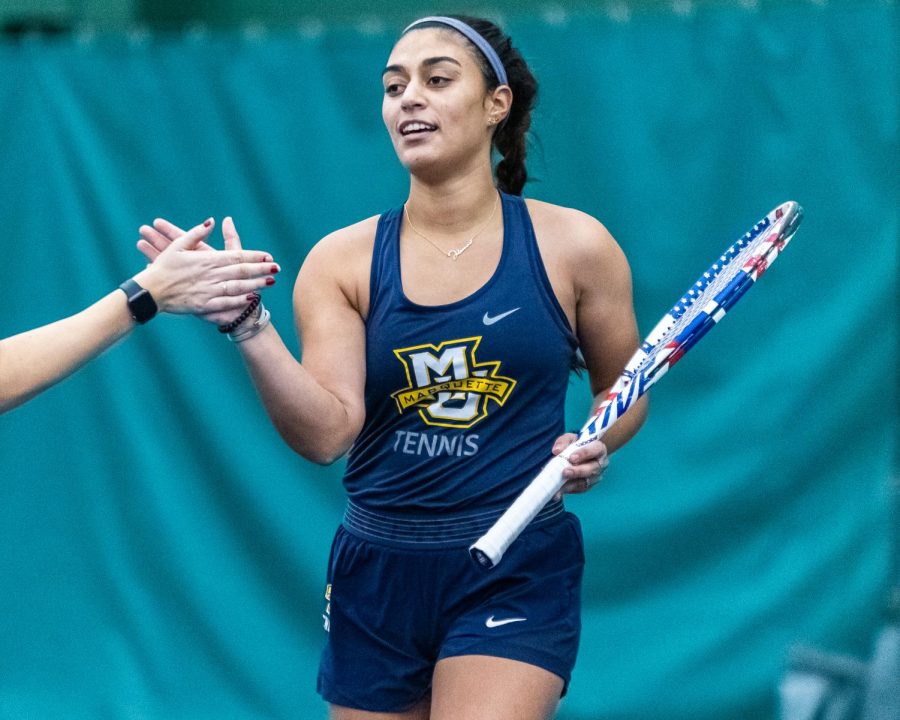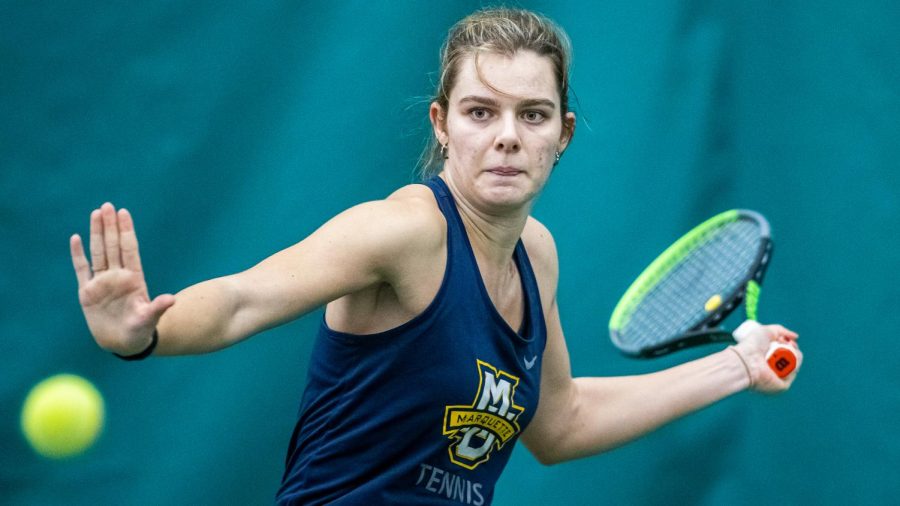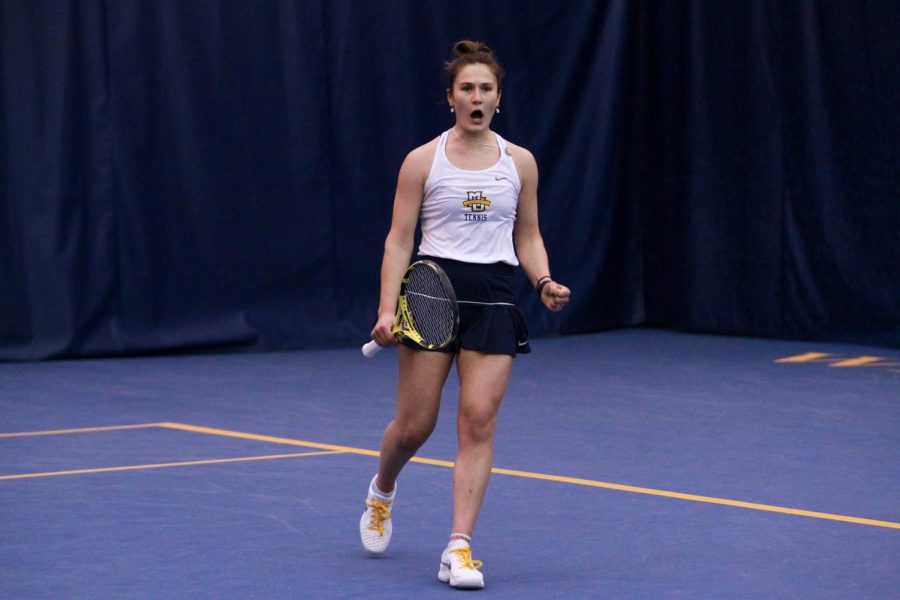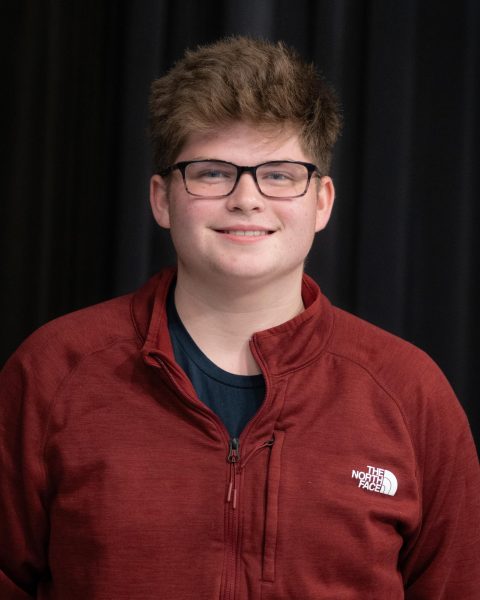If you look at both Marquette tennis rosters, one thing will jump out at you: a heavy international presence.
The women’s program has six international players while the men’s has five. These international athletes make up almost 50% of both teams and come from everywhere, spanning from New Zealand to Brazil to Switzerland.
Director of tennis and head coach of both programs Steve Rodecap says that tennis’ popularity in the rest of the world makes it easier to develop talented players.
“In Europe, the design is completely different than it is here,” Rodecap says. “You can have less resources and be successful over there versus here. You’re getting better athletes there (Europe) where financial restrictions have less of an influence.”
The road to college is long for international players.
First, players get on colleges’ radars after a few years of participating in tournaments. The International Tennis Federation sanctions various tournaments throughout the world that teenagers play in and then are given a ranking for their class.
But that’s just the beginning.
Through coordination with agencies that act as middlemen, players then are introduced to colleges. The agencies go to various tournaments to gauge participants’ interest in playing in college and how they can help with the process.
Once the players sign with the agencies, colleges receive player rankings and videos from tournaments that the agencies send over.
Rodecap says the process of recruiting international players is difficult because many players feel as though they are going professional.
“Typically, your top 30 kids in the ITF, maybe even top 50, all think they’re going pro, which is probably not the case,” Rodecap says. “It’s hard to convince a 16-year-old otherwise and that maybe college would be the best option.”
For the athletes that are interested in playing collegiately, the videos and rankings that agencies send don’t paint the full picture.
“We would try to see them play in person. That’s really important for us because videos only do so much,” Rodecap says. “Trying to get a feel for what type of person they are and what kind of relationships they have with their coaches, kind of relationships they have with their parents.”
Before COVID-19, the coaches would go overseas to watch recruits play live.
“We do a home visit or just visit the country or the city where they’re coming from and see them practice,” associate head coach of the women’s team Dusan Medan says.
Now, through and after COVID-19, the teams are not able to travel, forcing them to rely on other parties like the agencies.
But the athletes also play an important role.
“Once you bring a couple of [international students] to a program, a couple of international students, they recruit a little bit for you as well. … It’s all connected,” Medan says.
Senior Giulia Turconi was born in Como, Italy and went to the University of South Carolina before Marquette.
When it came to moving to the United States, it was hard to overcome logistical difficulties in communicating with colleges.
“We have seven hours of time zone difference,” Turconi says. “The time zone difference is tricky.”
Turconi says that communication with South Carolina was done through social media, specifically Facebook and Instagram.
Marquette also takes advantage of social media, such as WhatsApp.
Rodecap says that the people he reaches out to are excited about the prospects of coming to America to play and that it can even be harder to recruit Americans to play for him.
“Most of those the time, those kids are really eager to talk to you,” Rodecap says. “They feel that’s a reward for them to talk to a college coach.”
However, it is a new dawn for Marquette tennis.
For the next two seasons, the programs are forced to play off campus due to construction to the Helfaer Recreation Center and Tennis Stadium. Along with that, both programs are moving to non-scholarship by the 2025-26 academic year due to budget cuts within Marquette Athletics.
Turconi says the team culture has benefited due to its diverse presence, but that will change in light of the new cuts the programs are suffering.
“The international players just bring something different compared to others, because we have different culture, different languages,” Turconi says. “It’s gonna be different in the future. I don’t know if it’s going to be good or bad. That we’ll see about it.”
Medan says the cuts will force the teams to look more domestically and internally for players.
The new recruitment strategy may lead to more American players, but that isn’t something Rodecap is opposed to.
“There’s very little American presence in some programs, even some really good programs,” Rodecap says. “I’ve never gone that route because I value making sure that we have some Wisconsin kids on the roster, some Midwest kids on the roster and I’ve always tried to balance it that way.”
Even though Marquette can no longer offer the lucrative scholarships to players, Medan says the program is still in a good position when it comes to recruitment.
“We are in a position to still recruit at a high level,” Medan says. “A lot of that is personal, obviously creating personal relationships and developing personal relationships with the coaches and players in the country.”
This story was written by Jack Albright. He can be reached at [email protected] or on Twitter @JackAlbrightMU.


